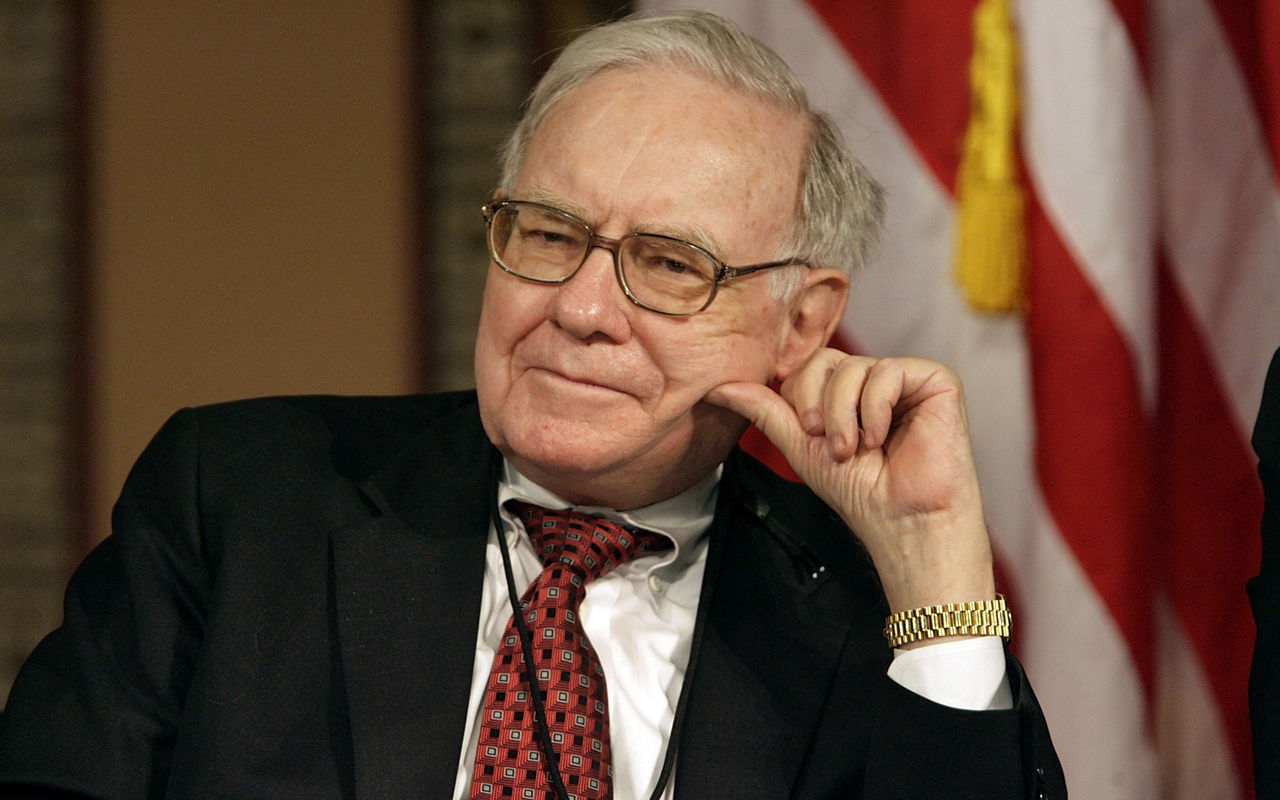Fund Fees on Trial
The most intriguing outcome would be a court ruling that puts downward pressure on fees.

Profit and prosper with the best of Kiplinger's advice on investing, taxes, retirement, personal finance and much more. Delivered daily. Enter your email in the box and click Sign Me Up.
You are now subscribed
Your newsletter sign-up was successful
Want to add more newsletters?

Delivered daily
Kiplinger Today
Profit and prosper with the best of Kiplinger's advice on investing, taxes, retirement, personal finance and much more delivered daily. Smart money moves start here.

Sent five days a week
Kiplinger A Step Ahead
Get practical help to make better financial decisions in your everyday life, from spending to savings on top deals.

Delivered daily
Kiplinger Closing Bell
Get today's biggest financial and investing headlines delivered to your inbox every day the U.S. stock market is open.

Sent twice a week
Kiplinger Adviser Intel
Financial pros across the country share best practices and fresh tactics to preserve and grow your wealth.

Delivered weekly
Kiplinger Tax Tips
Trim your federal and state tax bills with practical tax-planning and tax-cutting strategies.

Sent twice a week
Kiplinger Retirement Tips
Your twice-a-week guide to planning and enjoying a financially secure and richly rewarding retirement

Sent bimonthly.
Kiplinger Adviser Angle
Insights for advisers, wealth managers and other financial professionals.

Sent twice a week
Kiplinger Investing Weekly
Your twice-a-week roundup of promising stocks, funds, companies and industries you should consider, ones you should avoid, and why.

Sent weekly for six weeks
Kiplinger Invest for Retirement
Your step-by-step six-part series on how to invest for retirement, from devising a successful strategy to exactly which investments to choose.
When it comes to setting fees for mutual funds, sponsors have a fiduciary duty to act in the best interest of their customers. What that duty entails has long been the subject of debate. But sometime in the next few months the U.S. Supreme Court may clear up the matter once and for all.
The high court recently heard arguments in a lawsuit filed against Harris Associates, the Chicago money-management firm that runs the Oakmark funds. The case revolves around the discrepancy between what Harris charges for managing the funds and what it charges to run institutional accounts. The Seventh Circuit Court of Appeals ruled that courts needn’t get involved because the marketplace could handle the matter efficiently -- investors, for example, could vote with their feet by switching to lower-cost fund providers.
Easy standard. If upheld, the lower court’s ruling would essentially mean that fund companies have almost no fiduciary duty on behalf of shareholders when it comes to fees. That is much less rigorous than the already soft Gartenberg standard, a 1982 lower-court ruling that said that fees “should be within range of what would be produced by arm’s-length bargaining” between mutual fund sponsors and independent third parties. In practice, that’s proved to be such an easy standard to meet that no fund investor has ever won a lawsuit over fees.
From just $107.88 $24.99 for Kiplinger Personal Finance
Become a smarter, better informed investor. Subscribe from just $107.88 $24.99, plus get up to 4 Special Issues

Sign up for Kiplinger’s Free Newsletters
Profit and prosper with the best of expert advice on investing, taxes, retirement, personal finance and more - straight to your e-mail.
Profit and prosper with the best of expert advice - straight to your e-mail.
I hope the Supreme Court comes up with a new, clear standard for fiduciary duty that disappoints the fund industry and trial attorneys alike. I don’t like the idea of giving fund companies a blank check. After all, a fund is owned by its shareholders, not the sponsor. But I would also hate to see fund companies hamstrung by scores of lawsuits that serve only to enrich lawyers rather than shareholders.
The oral arguments don’t give me much confidence, though, that the high court will decide wisely. My impression is that the justices wouldn’t know a mutual fund from an iguana. The plaintiff’s counsel mistakenly asserted that a fund board couldn’t fire the adviser and hire a new one, and the justices seemed to agree. In fact, a board can fire the adviser. It just doesn’t happen often.
Chief Justice John Roberts suggested that higher cost equals higher quality. In a way, it does, but only in terms of dollars spent on management, not in terms of fees as a percentage of assets, as he implied. For example, Pimco Total Return, run by the estimable Bill Gross, charges annual management fees of 0.25%. But because the fund, the nation’s largest, holds some $200 billion in assets, Pimco clears about $500 million a year.
Meanwhile, the middling Federated Bond charges a yearly management fee of 0.75%, which, on $1.1 billion in assets, generates fees of $8.3 million. So, does Federated charge triple Pimco’s management fee because its bond pickers are three times better than Pimco’s, or are the Federated folks less talented, as the huge gap between Pimco’s and Federated’s revenues implies? I’d say it’s the latter.
The fund industry says, rightly, that you can’t compare the fees of funds and separate institutional accounts because retail investors require more servicing. In many instances, however, a mutual fund’s management fee includes a kitchen sink’s worth of other charges, such as distribution costs, that aren’t used to pay investment professionals. Thus, investors and fund directors alike are in the dark when they compare fees, both between mutual funds and institutional accounts and among different mutual funds.
The most intriguing potential outcome of the Harris case would be a Supreme Court ruling that puts downward pressure on fees. For example, the court could rule that to meet their fiduciary duty, advisers must treat mutual funds and institutional accounts similarly. That would hardly be the worst thing in the world for fund investors.
Columnist Russel Kinnel is director of mutual fund research for Morningstar and editor of its monthly FundInvestor newsletter.
Profit and prosper with the best of Kiplinger's advice on investing, taxes, retirement, personal finance and much more. Delivered daily. Enter your email in the box and click Sign Me Up.

-
 Ask the Tax Editor: Federal Income Tax Deductions
Ask the Tax Editor: Federal Income Tax DeductionsAsk the Editor In this week's Ask the Editor Q&A, Joy Taylor answers questions on federal income tax deductions
-
 States With No-Fault Car Insurance Laws (and How No-Fault Car Insurance Works)
States With No-Fault Car Insurance Laws (and How No-Fault Car Insurance Works)A breakdown of the confusing rules around no-fault car insurance in every state where it exists.
-
 7 Frugal Habits to Keep Even When You're Rich
7 Frugal Habits to Keep Even When You're RichSome frugal habits are worth it, no matter what tax bracket you're in.
-
 How I'm Going to Invest My Mega Millions Lottery Jackpot
How I'm Going to Invest My Mega Millions Lottery JackpotThe odds of winning the Mega Millions lottery are effectively zero, but here's how I'm investing my fortune should I hit the jackpot.
-
 Four Random Facts and Thoughts About Warren Buffett
Four Random Facts and Thoughts About Warren BuffettIf I love Warren Buffett so much why don't I just marry him?
-
 Investing in Gold Is Dumb
Investing in Gold Is DumbStocks are better than gold for both generating wealth and offering protection against inflation.
-
 What's So Scary About a Mega-Cap Tech Bull Market?
What's So Scary About a Mega-Cap Tech Bull Market?Bears say the market can't keep rallying when only five mega-cap tech stocks are driving returns, but history suggests otherwise.
-
 We Are Not in a Bull Market
We Are Not in a Bull MarketIt takes more than a 20% gain off the low to proclaim the beginning of a new bull market.
-
 Why I Don't Buy Stocks
Why I Don't Buy StocksIt's nearly impossible to beat the market – but it is cheap and easy to match it.
-
 Amy Domini on the Secrets of Sustainable Investing
Amy Domini on the Secrets of Sustainable InvestingESG An ESG pioneer says finding good corporate citizens is the best way to make money.
-
 Bitcoin Halving: What Does It Mean for Investors?
Bitcoin Halving: What Does It Mean for Investors?Technology 'Mining' for this cryptocurrency just became a lot more expensive